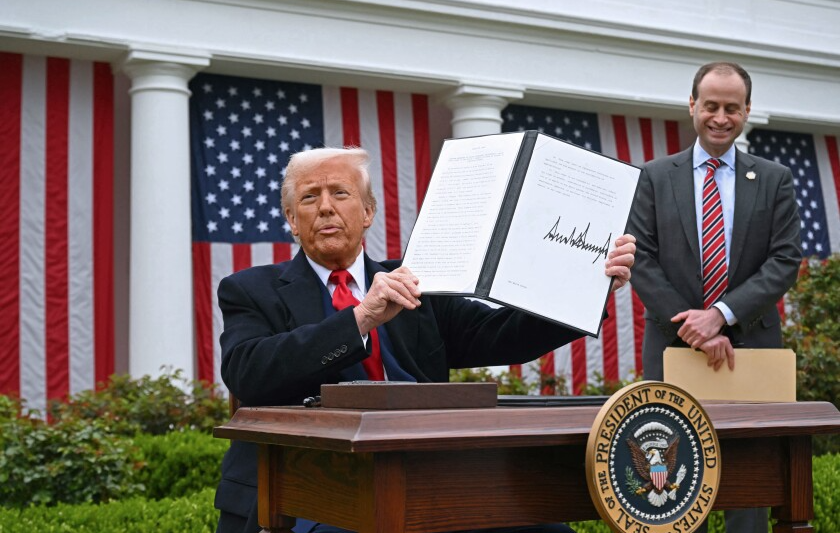President Trump's April 2, 2025 Tariffs: A New Chapter in U.S. Trade Policy

On April 2, 2025, President Donald Trump announced a series of sweeping tariffs, marking a significant shift in U.S. trade policy. Dubbed "Liberation Day," these measures aim to address perceived trade imbalances and protect domestic industries.
Details of the Tariffs
Universal Baseline Tariff: A 10% tariff on all imported goods, effective April 5, 2025, excluding imports from Canada and Mexico.
Country-Specific Reciprocal Tariffs: Additional tariffs targeting specific countries based on their trade practices, effective April 9, 2025. Notable examples include:
- China: 34% tariff on imports.
- European Union (EU): 20% tariff on imports.
- Japan: 24% tariff on imports.
- India: 26% tariff on imports.
- Vietnam: 46% tariff on imports.
Automobile Tariffs: A 25% tariff on all imported automobiles, effective April 3, 2025.
Implications of the Tariffs
Domestic Impact:
-
- Consumer Prices: The tariffs are expected to lead to higher prices for imported goods, affecting consumer spending.
- Manufacturing Sector: While some domestic industries may benefit from reduced foreign competition, others reliant on imported components could face increased production costs.
- Inflation and Economic Growth: Economists warn of potential inflationary pressures and a slowdown in economic growth due to increased costs and trade uncertainties.
Global Economic Effects:
Trade Relations: The tariffs have strained relations with key trading partners, leading to concerns about a potential global trade war.
Supply Chains: Global supply chains may be disrupted as companies seek to adjust to the new trade barriers.
Market Reactions: Financial markets have reacted negatively, with stock indices experiencing volatility amid fears of escalating trade tensions.
Reactions from Major Economies
-
- China: The Chinese government has condemned the tariffs and vowed to implement countermeasures, raising concerns about an escalating trade conflict.
- European Union: EU officials have criticized the tariffs as unjustified and are considering reciprocal measures to protect their economic interests.
- Japan: Japanese leaders have expressed disappointment and are evaluating potential responses to safeguard their industries.
- India: The Indian government has labeled the tariffs as unfair and is exploring options for retaliation to protect its trade interests.
- Vietnam: Vietnamese officials have expressed concern over the high tariffs and are seeking diplomatic solutions to mitigate the impact.
- Canada and Mexico: While exempt from the universal baseline tariff, these countries remain vigilant about potential future trade actions and are engaging in discussions to maintain stable trade relations.
Conclusion
President Trump's April 2, 2025, tariffs represent a bold move in U.S. trade policy, aiming to rectify perceived inequities and bolster domestic industries. However, the broad scope and significant rates of these tariffs have sparked global concern about potential economic repercussions, including higher consumer prices, strained international relations, and disruptions to the global trading system. The coming months will be crucial in assessing the full impact of these measures and the responses from affected nations.
Recent post
Take Fintegriti for a Test Drive
No License Required!
Still on the fence? Hop in and experience payments so smooth,
even your morning coffee will be jealous



